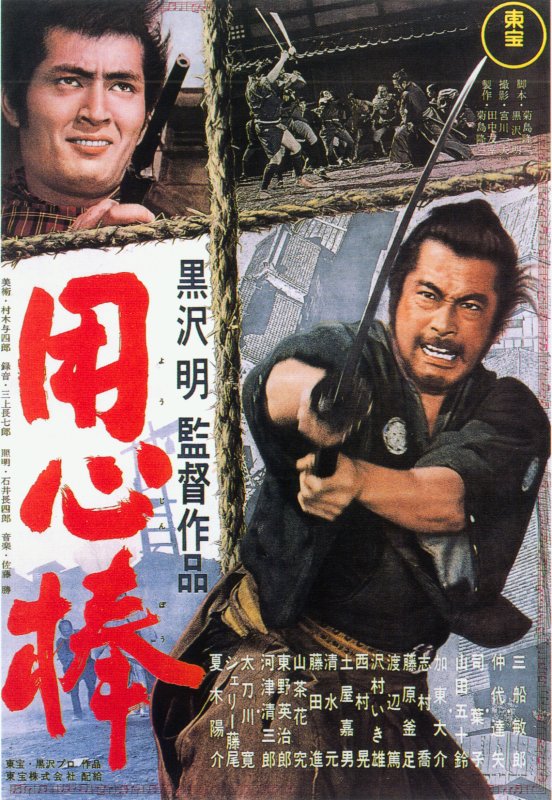
It's well known that Sergio Leone stole the plot of Fistful Of Dollars from Kurosawa's Yojimbo, transposed it to the Old West and gave birth to the Spaghetti Western. Leone's film was a big hit worldwide, and in a legal settlement over the plagiarism, Kurosawa was awarded the revenues from the film in most Asian markets. Yojimbo had a been a big hit itself, mostly in Japan, but the profits to Kurosawa from Fistful Of Dollars exceeded those of the original by a considerable degree. Kurosawa always regarded this as a stroke of great good fortune.
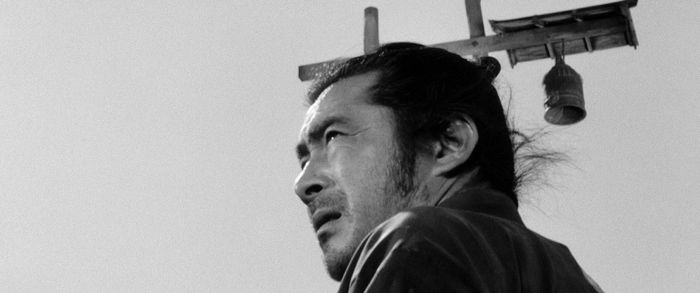
Leone fans like to point out how much he added to what he took from Kurosawa, but in fact it was very little. Everything that's most startlingly “original” about Fistful Of Dollars was already present in the film it was based on. The quirky visual style, mixing views of deep spaces with extreme and iconic widescreen close-ups, the jangly score, with odd instrumentation and occasional bombastic flourishes, the whole sardonic attitude towards genre, were invented by Kurosawa. Calling Leone's style “operatic”, and thus linking it to specifically Italian sources, ignores the fact that Yojimbo is just as “operatic” in just the same ways.
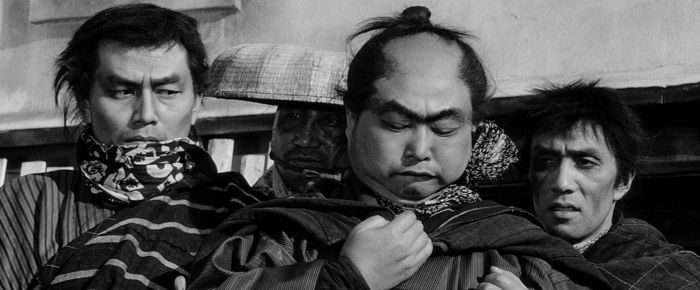
Kurosawa's film was extremely radical for its time. He was trying to re-imagine the samurai film, invest it with a modernistic attitude, while at the same time delivering the reliable pleasures of action set-pieces, but action set-pieces that were even bolder and more dazzling than those usually found in the genre.
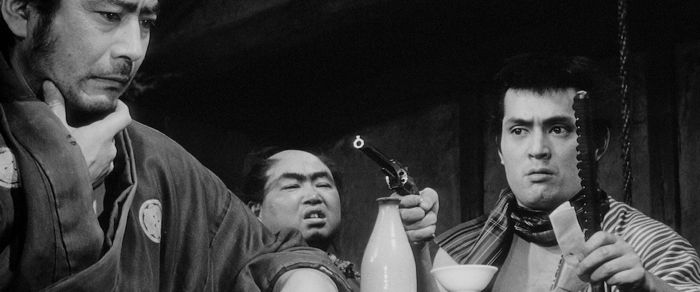
As part of his strategy, Kurosawa emphasized the link between samurai films and American Westerns, which he loved and had studied carefully. The story unfolds almost entirely on a traditional Western T-set, representing a town with a main street that ends at a cross street. It's a Japanese town from around 1860, not an American one on the frontier in the same era, but its look and feel are familiar from any number of American Westerns.
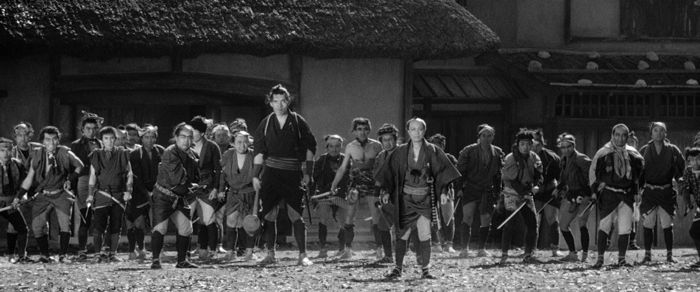
The climactic showdown between the chief adversaries in Yojimbo deliberately evokes the traditional showdown in the street between gunslingers in a Western, and Kurosawa even introduces a pistol into the confrontation, to make the association, and the irony, clearer.
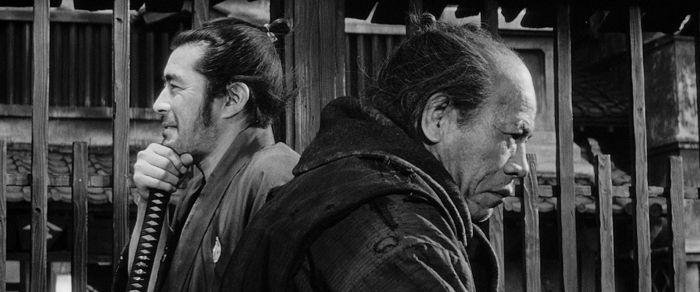
The film is basically a comedy, or satire, with interludes of action and dramatic seriousness. Its mixed tone resembles to a degree that of Rio Bravo, which had come out a few years earlier and done terrific box office. Yojimbo's comedy, though, is much less genial than the comedy of Hawks's great Western. It has a dark and savage quality, and its fooling with its genre has a edge of malice, a deconstructive quality, as though it wanted to sweep the traditional samurai film into history. Hawks's joshing with the Western genre is loving by comparison.
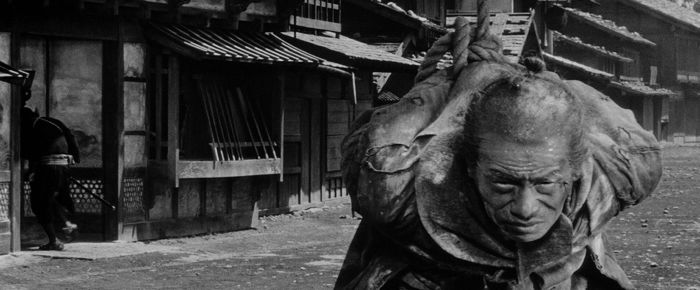
It was the sardonic edge, the dark comedy, the self-conscious and almost sarcastic attitude towards genre, that defined the Spaghetti Western of Sergio Leone, and Leone took all those qualities directly from Kurosawa's film.
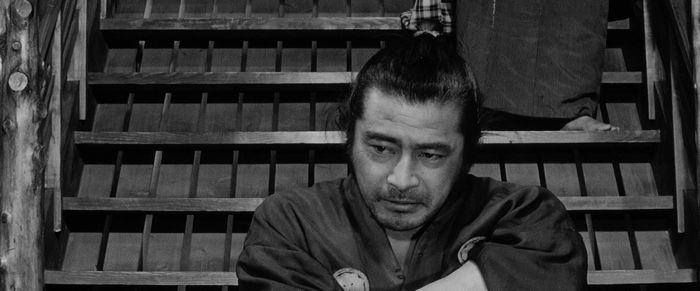
Yojimbo was one of its director's most successful and influential films but not, I think, one of his great ones. The twists and turns of the plot become repetitive, the visual style is too often merely mannered, the sardonic attitude is superficial, almost adolescent in its knowing diffidence. Mifune's wonderful performance ties it all together as an entertainment, at least on a first viewing, but I think the film is more important as a catalyst in the development of the Sixties Western than as an artistic achievement in its own right.
